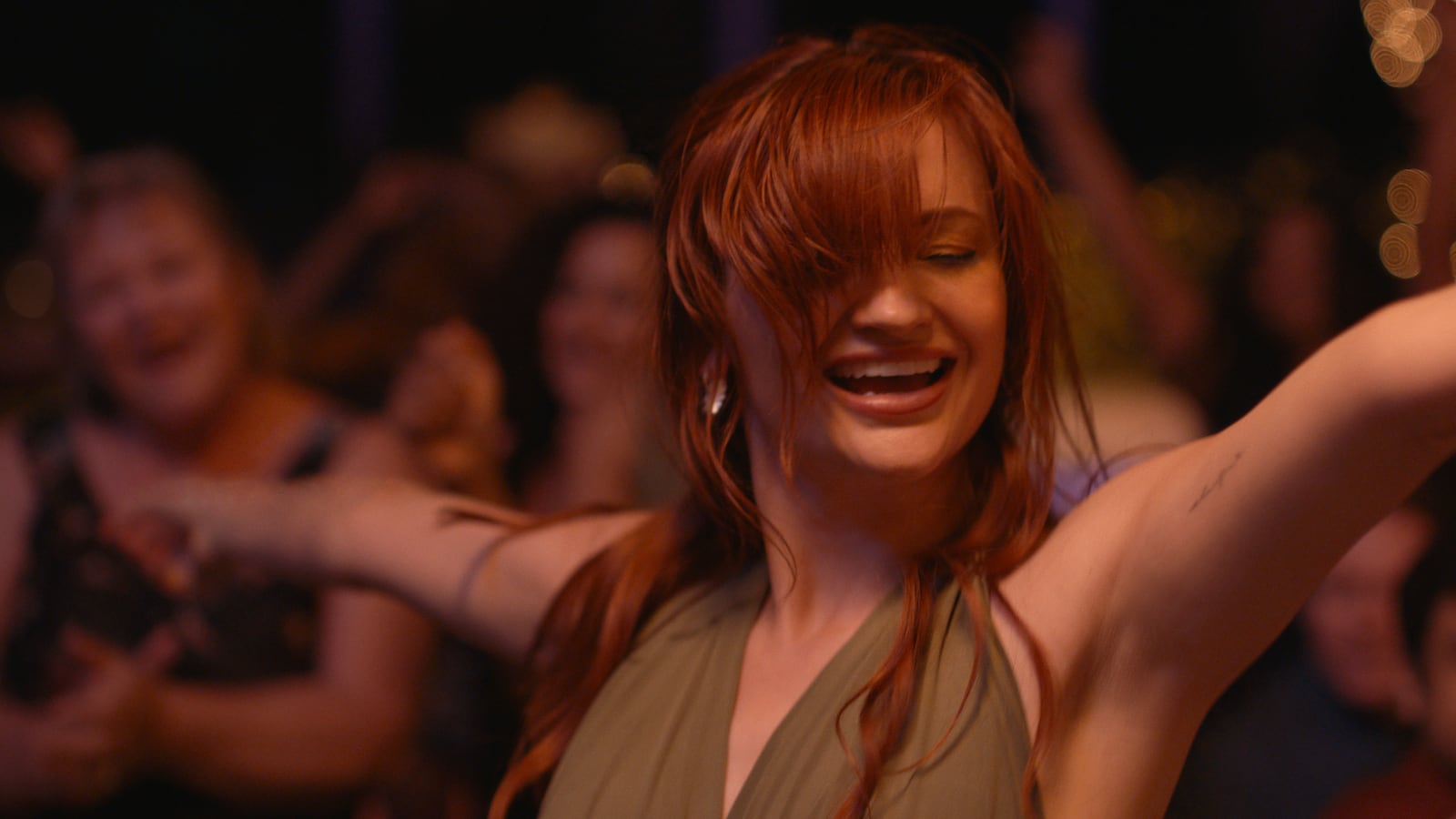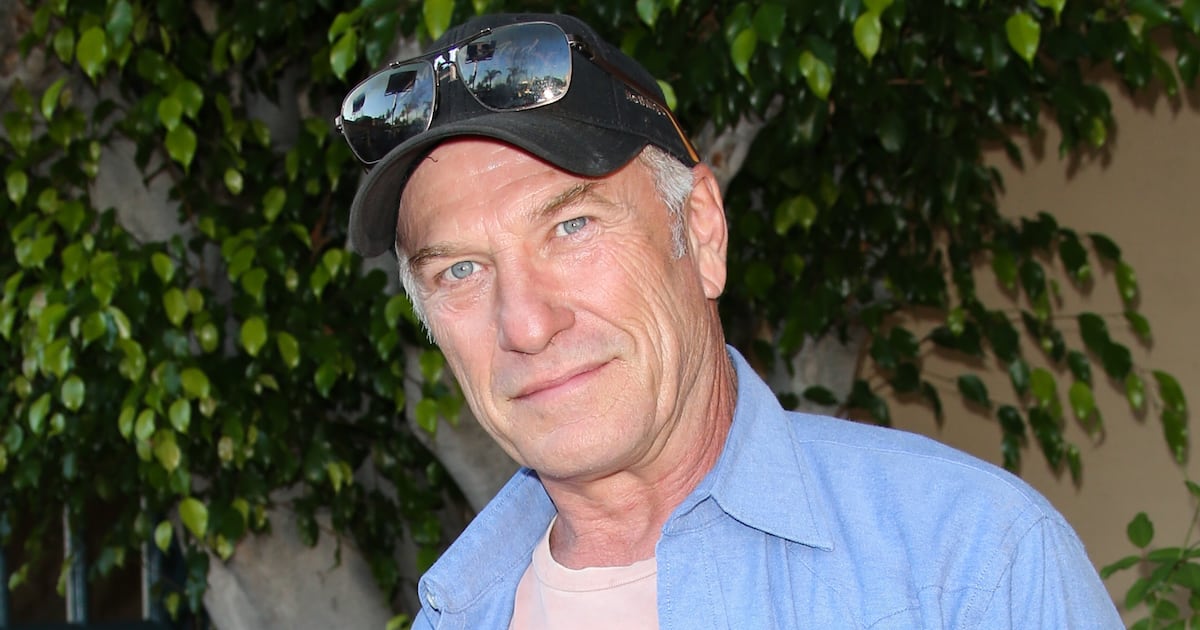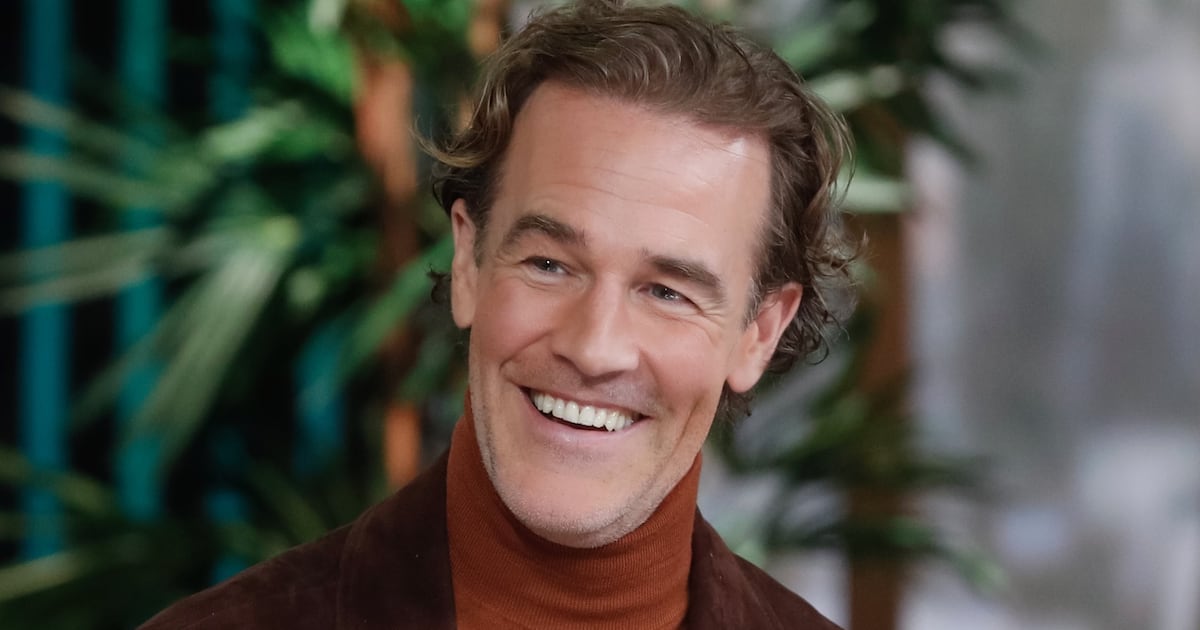Scrambled might open on a wedding scene, but our lead character, Nellie Robinson, is nowhere near her “settling down” era. For one thing, she’s not the one getting married. Instead, she’s on hand as a bridesmaid. (She’s the one the bride hopes might have cocaine in her purse.) Nellie doesn’t have a big career or a big relationship, either—just a jewelry business that acquaintances annoyingly describe as her “little” Etsy thing.
In other words, Nellie is a millennial stereotype, and on top of that, she’s far from happy about it. The worst part? At the age of 34, our red-headed Petra Pan-like protagonist finds out that her fertility is already singing its swan song. If she ever hopes to have biological children, she’ll need to freeze her eggs.
Leah McKendrick, who wrote, directed, and stars in Scrambled, plays Nellie as spiky but tender, as she navigates a never-ending march of baby showers, judgmental conversations, and double standards. Although the film itself can feel a little undercooked, especially toward the end, McKendrick’s performance will leave you wanting more. With any luck, her highwire act of a performance will lead to even more complex leading roles in future comedies.

After its premiere last year at South by Southwest, Scrambled will release wide this Friday, Feb. 2. The R-rated comedy features several familiar faces, including Saturday Night Live star Ego Nwodim, Clancy Brown, Grace and Frankie’s June Diane Raphael, Yvonne Strahovski from The Handmaid’s Tale, and, perhaps most amusingly, Jane the Virgin cutie Brett Dier as a toxic “Nice Guy.” That said, this is unquestionably Nellie’s story, and McKendrick tackles this thorny comedic ground with both guts and heart. Throughout the film, she finds familiar and funny ways to tug at our emotions—like when an extremely hormonal Nellie cuts into three rotting avocados in a row and throws a screaming fit in her kitchen.
McKendrick’s power lies in how she captures the strange, sometimes embarrassing incongruities of being a woman in her early thirties. On one hand, you’re fully, undeniably an adult; on the other, for many modern young adults, the traditional trappings of “adulthood” have proven either elusive or thoroughly unappealing. When Nellie saunters into a bar in her old, hot pink prom dress with star-shaped sequins glimmering on her cheeks, she might as well be a poster child for a certain, painfully specific brand of millennial arrested development.
This feeling of “not-quite-adult” adulthood lies at the core of Nellie’s inner conflict: She doesn’t want kids now, but she’s also not positive she’ll never want them in the future. While the men in her life have never had to think of such possibilities as having an expiration date, she suddenly feels like she’s staring down a very unfriendly deadline.
At the same time, McKendrick never lets her character turn into a two-dimensional punchline. As messy as Nellie’s life might be, her emotional core feels undeniably human—from her sudden fear that her diminishing fertility means she’s “running out of time” to build the life she wants, to her righteous fury she feels each time someone belittles her plan to freeze her eggs.
At one point, during a tense conversation with her less-than-understanding father, she blurts out, “I don’t enjoy spending $70 to go to fucking stork parties where I shower pregnant bitches with gifts while they act like they cured cancer—‘You did it! You had sex without a condom!’ … I’m the one shooting myself up with hormones, mixing my meds like I’m Dr. Fucking Fauci, growing 20 eggs at once like I’m Octomom. Can your body do that?” In those scenes, McKendrick drives home one of the most frustrating aspects of having a uterus: Not only does it make your life a living hell once a month before it decides to “diminish,” but for some reason, way too many people seem to believe that they know better than you do how you should be using it.

In some moments throughout Scrambled, however, I found myself wishing that McKendrick’s writing had left room for a deeper performance. Montages set to music occasionally eat up space that could’ve gone toward some deeper, more contemplative character building, and as hilarious as her throwback tour of shitty exes might’ve been, a little more time in each scene would have deepened our understanding of how Nellie has changed since she last hooked up with them. Beyond that, Nellie’s emotional monologue at a support group for women who’ve experienced miscarriages completely misses the mark; somehow, it manages to be both inappropriate and treacly at the same time.
Things work best when McKendrick allows Nellie’s feelings to flow more naturally, and it’s during those beats that her performance cuts the deepest. Sometimes you’ll laugh, and sometimes you’ll cringe, but no matter what, McKendrick’s is a performance you can really believe. Hopefully, once she finishes writing the I Know What You Did Last Summer sequel, she’ll pop up in even more starring roles. When she finally cuts open a green avocado at the end of this one, it’s a victory we can all really feel.






